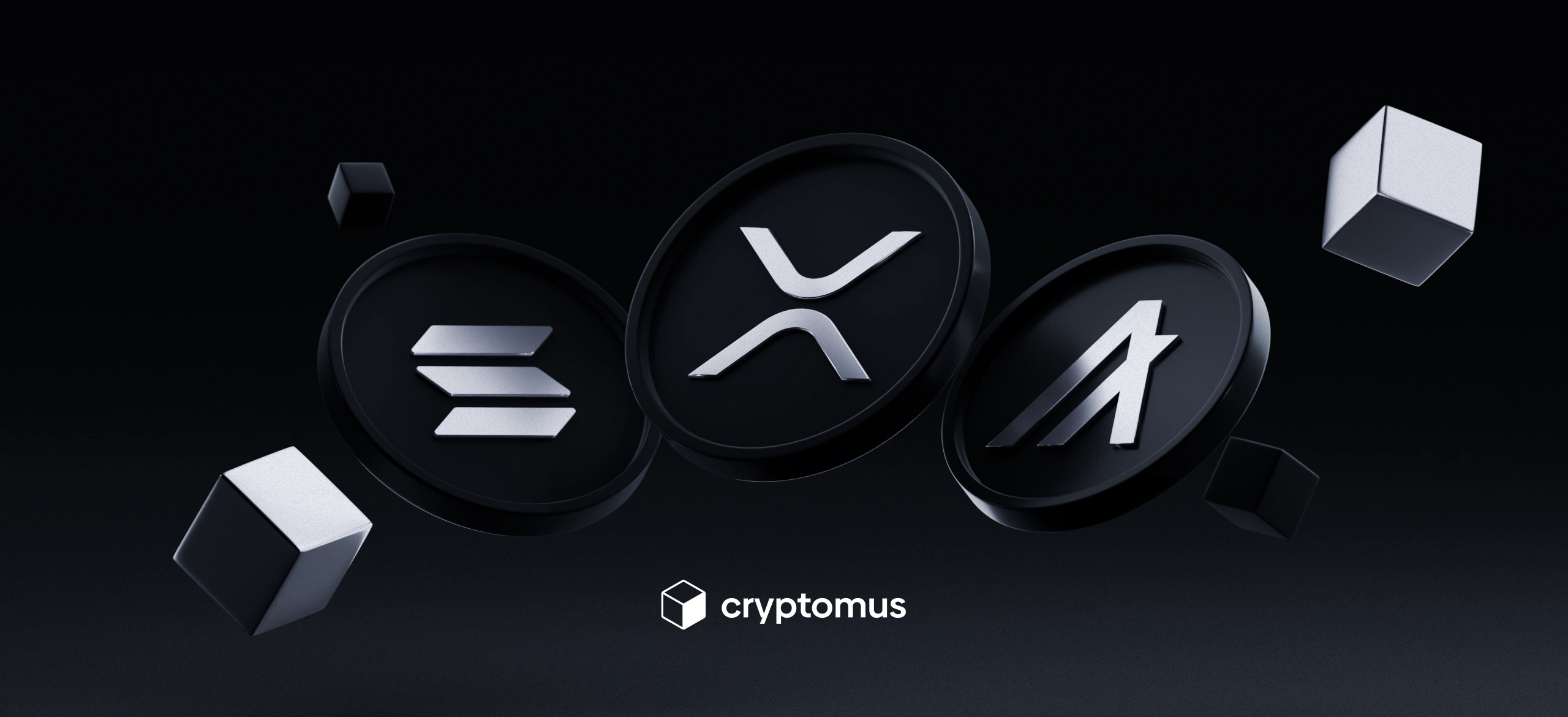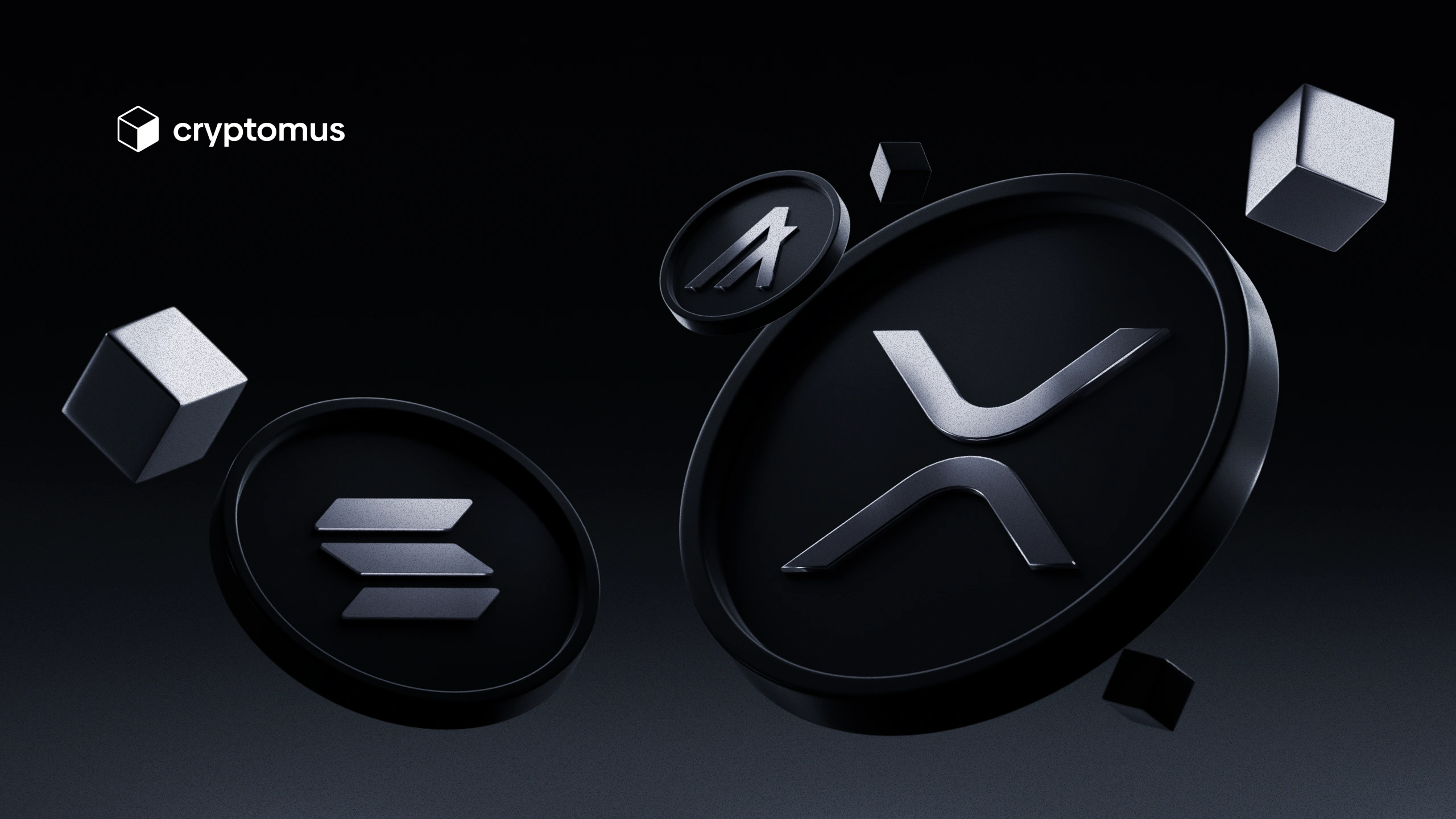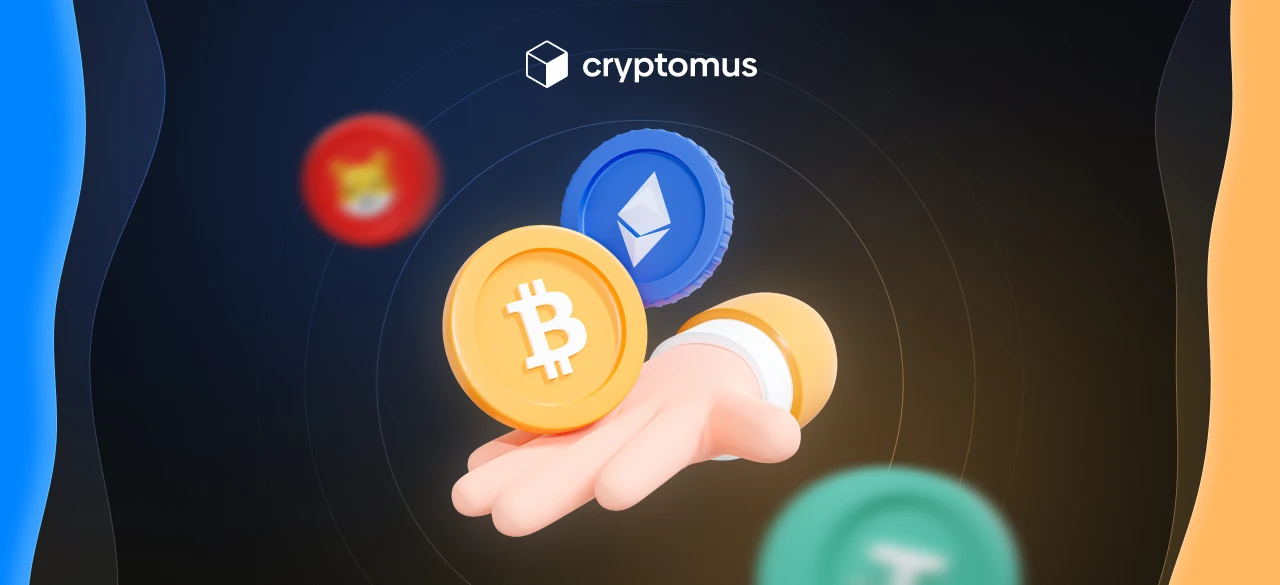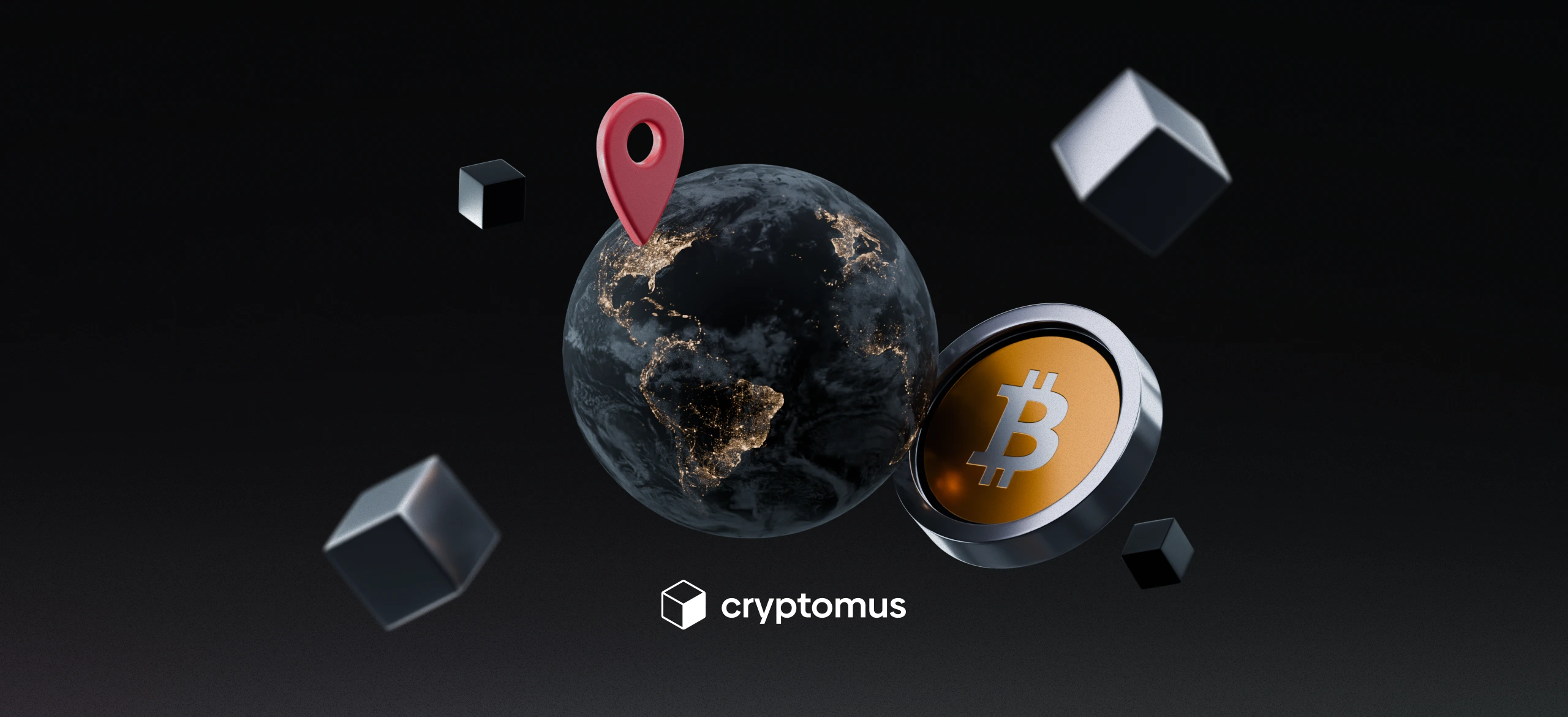
Top 10 Blockchains By Transaction Speed
Table of Contents
Transaction speed is one of the most important factors when evaluating a blockchain’s performance. Faster blockchains can handle more transactions per second, reduce network congestion, and improve user experience. In this article, we’ll look at the top 10 blockchains that stand out for their speed and efficiency.
What Does Transaction Time Depend On?
Transaction time is a speed that shows the speed at which transfers are processed and confirmed on the blockchain. The time required to complete a transaction depends on various factors, such as:
- Network congestion: more transactions slow the network, and users may need higher fees to prioritize their transfers.
- Consensus mechanism: PoW blockchains are slower under heavy load, while PoS blockchains process transactions faster.
- Block creation speed: faster block generation means quicker transaction confirmations.
- Block size: larger blocks can include more transactions but may slow processing if hardware is limited.
- Scaling solutions: Layer 2 solutions help process more transactions off the main chain, speeding up confirmations and reducing fees.
By considering these key factors, you can choose a coin working on a particular blockchain, so it is not only fast but also offers a high level of security and network efficiency.
What Are The Fastest Cryptocurrencies?
We have prepared for you a list of cryptocurrencies with the fastest blockchain in 2025:
-
Internet Computer (ICP)
-
Solana (SOL)
-
Aptos (APT)
-
Algorand (ALGO)
-
Near Protocol (NEAR)
-
Hedera (HBAR)
-
Binance Coin (BNB)
-
Arbitrum (ARB)
-
Polygon (POL)
-
Tron (TRX)
In this table, you can also clearly see the transactions’ speed and fees for each coin:
| Blockchain | Native Token | Transaction Speed | Max TPS | |
|---|---|---|---|---|
| Internet Computer | Native TokenICP | Transaction Speed1-2 sec | Max TPS25,621 | |
| Solana | Native TokenSOL | Transaction Speed0.4 sec | Max TPS5,289 | |
| Aptos | Native TokenAPT | Transaction Speed0.9 sec | Max TPS12,933 | |
| Algorand | Native TokenALGO | Transaction Speed4.5 sec | Max TPS5,716 | |
| NEAR Protocol | Native TokenNEAR | Transaction Speed1-2 sec | Max TPS4,135 | |
| Hedera | Native TokenHBAR | Transaction Speed3–5 sec | Max TPS3,302 | |
| BNB Chain | Native TokenBNB | Transaction Speed3 sec | Max TPS2,545 | |
| Arbitrum (L2) | Native TokenARB | Transaction Speed1-2 sec | Max TPS1,402 | |
| Polygon (L2) | Native TokenPOL | Transaction Speed2-5 sec | Max TPS429 | |
| Tron | Native TokenTRX | Transaction Speed3-5 sec | Max TPS272 |
Now let's talk about each player in more detail.

Internet Computer
Transaction Speed: 1-2 sec
Internet Computer (ICP) is the DFINITY Foundation’s decentralized computer that combines the speed and power of blockchain with smart contract capabilities. Built on Chain Key Technology and utilizing a Proof-of-Stake consensus mechanism, it delivers a high transaction reversal rate of 1–2 seconds and an impressive throughput of 209,708 TPS.
This ambitious project has a great future due to the huge opportunities in its ecosystem; for example, creating hosted applications of any complexity within the blockchain. The prospects are also confirmed by the large number of partners and the continuous expansion of ICP applications in the real world.
Solana
Transaction Speed: 0.4 sec
Solana (SOL) is a unique blockchain with record-breaking transaction speed that can confirm a transfer in 0.4 seconds. Thanks to its Proof-of-History (PoH) consensus mechanism, SOL operates data quickly across the net and provides theoretically maximum TPS of 65,000. This type of consensus allows for parallel transaction processing, making it an excellent choice for DApps and NFTs where speed is a top priority.
Due to its ever-evolving ecosystem, Solana is often called the “Ethereum killer” since it surpasses Ethereum in performance, speed, and lower transaction costs. The only downside is occasional network outages.
Aptos
Transaction Speed: 0.9 sec
Aptos (APT) is a blockchain designed to increase throughput without compromising reliability. Given that the project is often called one of the fast-paced platforms, it is clear that the developers are successfully achieving their goal.
APT is considered a high-speed cryptocurrency thanks to its parallel transaction execution technology, which enables 0.9-second transfer confirmations and a throughput of 160,000 TPS. Another major advantage is its native Move programming language and smart contract verifier, which significantly enhance security. This makes the blockchain not only incredibly fast but also more reliable.
Algorand
Transaction Speed: 4.5 sec
Algorand (ALGO) is a relatively new decentralized platform known for its high performance and low fees of $0.00021. With the Pure Proof-of-Stake (PPoS) consensus mechanism, it achieves an average transaction speed of 4.5 seconds and a throughput of 6,000 TPS without slowing down. Speaking of reliability, Algorand utilizes security protocols to ensure transaction confidentiality.
ALGO differs from other cryptocurrencies because of its quick processing speed, which makes it perfect for smart contracts, DeFi development, and payments.
Near Protocol
Transaction Speed: 1-2 sec
Near Protocol (NEAR) is an open-source project aimed at developing high-speed decentralized applications. This network is distinguished by innovative technology and the ability to solve the blockchain trilemma—ensuring high security and performance while maintaining decentralization.
Near Protocol perfectly copes with its task, as the Proof-of-Stake consensus mechanism allows it to process transactions in a few seconds, and throughput reaches up to 12,000 TPS. Additionally, its sharding technology enhances scalability, making data processing more efficient compared to traditional blockchain platforms.
Hedera
Transaction Speed: 3-5 sec
Hedera (HBAR) is a project launched in 2018 by Swirlds and the Hedera Governing Council, which includes industry giants like Google, IBM, and Boeing. Unlike traditional blockchains, HBAR uses Hashgraph technology with a data structure known as a directed acyclic graph (DAG), which validates transactions in 3-5 seconds and supports a throughput of up to 500,000 TPS.
The network is managed by 39 major corporations, including Hedera’s developers, who work closely with government entities. So, after Trump’s announcement regarding the creation of a digital asset reserve, HBAR’s price surged by 12%. With its high scalability and real-world applications, Hedera may become part of this reserve in the future.
Binance Coin
Transaction Speed: 3 sec
Binance Coin (BNB) is a cryptocurrency issued by the Binance exchange to provide stability there and reduce transaction fees. However, over time, BNB expanded beyond the exchange and became known for its high transaction processing speed, averaging around 3 seconds.
Currently, the coin operates on Binance Chain’s blockchain and Binance Smart Chain, which use smart contracts. Its network's throughput is 2,222 TPS, but developers are working on increasing confirmation speeds without compromising security. One of BNB’s biggest advantages is its low fees, around $1, which gives a more cost-effective option compared to competitors like Ethereum and Solana.
Arbitrum
Transaction Speed: 1-2 sec
Arbitrum (ARB) is an Ethereum Layer 2 solution developed by Offchain Labs to enhance transfer processing power. Thanks to its Optimistic Rollup technology, ARB excels at confirming transactions in 1–2 seconds with a throughput of 40,000 TPS. This makes Arbitrum a more preferred choice compared to ETH, which can process only 10 transactions per second.
At the core of Arbitrum is Optimistic Rollup, an advanced technology that simplifies off-chain computations while maintaining Ethereum's security. In addition to its high speed, the developers have also prioritized security and data integrity, ensuring transaction reliability, boosting speed, and reducing costs.
Polygon
Transaction Speed: 2-5 sec
Polygon (POL) is a second-layer solution for Ethereum designed to address transaction processing efficiency issues. Thanks to its Proof-of-Stake consensus mechanism, POL can process transactions in 2–5 seconds while maintaining Ethereum compatibility.
This is made possible by Polygon's Plasma architecture, which allows the creation of sidechains, reducing the load on Ethereum and enhancing its throughput. Additionally, in terms of blockchain technology, POL supports the development of various types of applications, enabled by the innovative Polygon SDK, that is highly attractive to developers.
Tron
Transaction Speed: 3-5 sec
Tron (TRX) is a decentralized blockchain platform originally launched for sharing entertainment content. Thanks to the use of the Delegated Proof-of-Stake (DPoS) consensus mechanism, TRX can handle up to 2,500 TPS, offering high throughput.
Tron relies on a community-based voting system, where TRX holders vote for a small number of representatives, known as SRs (Super Representatives). These SRs are responsible for verifying transactions and creating new blocks in the chain. This system accelerates transfer processes and significantly reduces the blockchain’s energy consumption.
We shared with you the top 10 fastest and safest blockchains for 2025. We hope you found your favorite one in this diverse list, whether it is the newcomer Arbitrum, the already proven Solana, or any other high-speed player.
Which coin did you choose? Let us know in the comments!
Simplify Your Crypto Journey
Want to store, send, accept, stake, or trade cryptocurrencies? With Cryptomus it's all possible — sign up and manage your cryptocurrency funds with our handy tools.
Get Started









